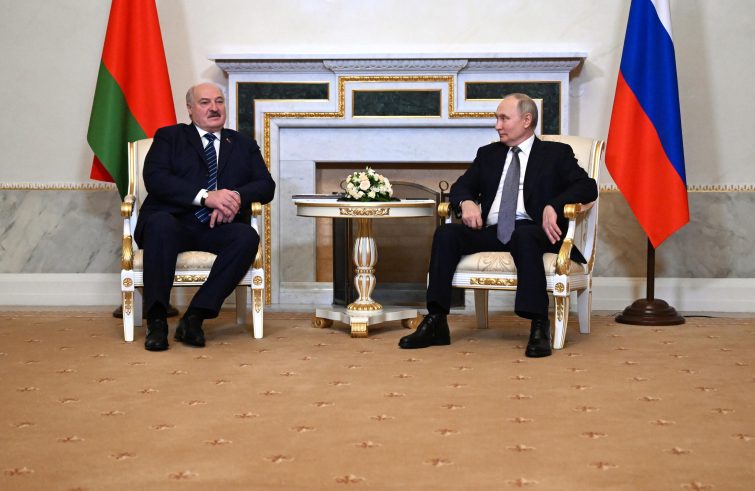
“For the past 30 years, every time Belarus has held elections – and the next parliamentary elections are scheduled for 25 February – the atmosphere has been surreal. According to Amnesty International, virtually all of the 12 opposition parties have been prevented from registering and have been dissolved, so they will not be able to take part in the elections. This accounts for this latest crackdown. Contacted by SIR, Riccardo Noury, spokesperson for Amnesty International Italy, interprets the news that has come out of Belarus over the last few days, thanks to the courageous monitoring and reporting activities carried out by human rights NGOs in the country. “The figures are alarming – Noury is quick to point out – “more than 1,500 political prisoners are currently being held”. Amnesty International has expressed concern about the recent wave of arrests of dozens of people involved in the “INeedHelpBY” project, which provides assistance to people who have been financially affected by political repression or are family members of prisoners. SIR’s attempts to contact the organisation were without response.
According to the human rights centre ‘Viasna’, on 23 January police raided the homes of 160 people, conducted searches and arrested numerous people.
“The year 2023 has been marked by an escalation in the crackdown on Catholics and members of Christian churches. Incidents include people being arrested for distributing “extremist materials”, police raiding churches and cathedrals, and security forces beating several priests,” Noury continued. Amnesty has no “precise” figure for the number of priests in prison, Catholic and non-Catholic. “I know for a fact that two Protestant pastors belonging to a ‘New Life’ Protestant church were arrested last October. But that is the only detailed information I have. What we do know is that on 3 January Lukashenko signed a new punitive law against religious organisations called ‘On Freedom of Conscience and Religious Organisations’.”
According to the NGOs, the law tightens the government’s control over religious organisations and extends the regime’s powers to ban, suppress and dismiss them.
“All religious organisations,” explains the Amnesty spokesperson, “have been forced to undergo a re-registration process or face closure. “Freedom of expression is being increasingly restricted,” Noury continues. “There have also been a number of amendments to the Penal Code, introducing the offence of anti-state orientation, which has led to people being sentenced for insulting public authority, discrediting state institutions or, I quote, inciting hostility and enmity. I read in our materials that even lawyers are being targeted. Last year, 10 were imprisoned and more than 100 were stripped of their licenses. This clampdown also undermines fair trials as there are no human rights lawyers to defend those on trial for political reasons. Not to mention the deaths in prison. Last July, Ales Pushkin, the dissident artist sentenced to five years in prison on trumped-up charges, died of a perforated ulcer that went untreated in prison.”
“That is the picture,” concludes Noury. “The only positive news is that no death sentences were carried out in 2023, but this is really the only small piece of good news.”
The spotlight is now on the upcoming elections. Belarusian leader Aleksandr Lukashenko signed the decrees announcing parliamentary elections to be held on 25 February 2024 for the lower house, and on 4 April 2024 for the upper house. Lukashenko “officially” won the 2020 presidential election with 80% of the vote, but the outcome was widely seen as the result of widespread electoral fraud, leading to months of mass anti-regime protests in Belarus. Peaceful demonstrations were violently crushed with mass arrests, and police have even been accused of torturing demonstrators. The EU’s High Representative for Foreign Policy, Josep Borrell, went so far as to openly denounce the elections as “rigged”. It is still uncertain whether external observers will be deployed to protect the freedom to vote. This will depend on the decisions of the Council of Europe.
“There is a high risk of unfair elections, given that the last 12 opposition parties have been banned,” says Amnesty’s representative in Italy.
Breaking the veil of silence is the only thing the NGOs intend to do at the moment. “The gradual isolation into which Belarus has fallen,” concludes the Amnesty spokesperson, “is highly detrimental. It is detrimental to human rights and the protection of rights. Talking about it is a step in the right direction.”









